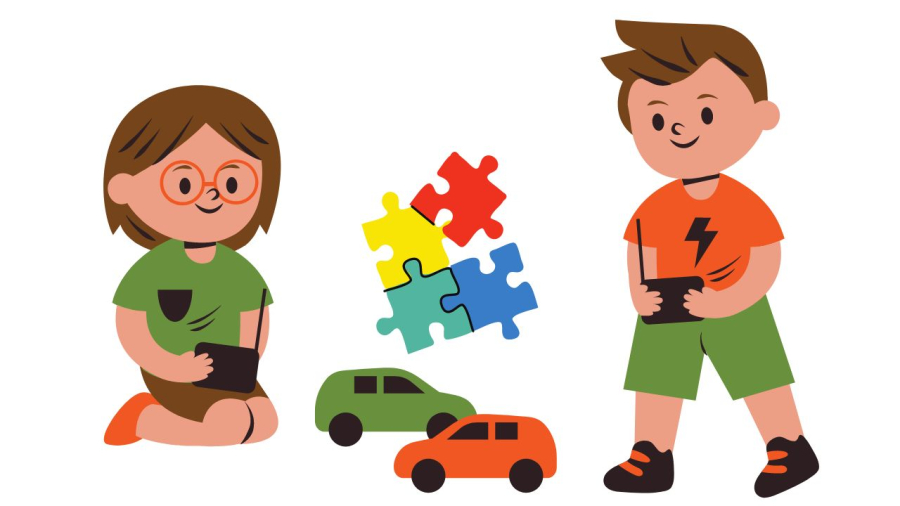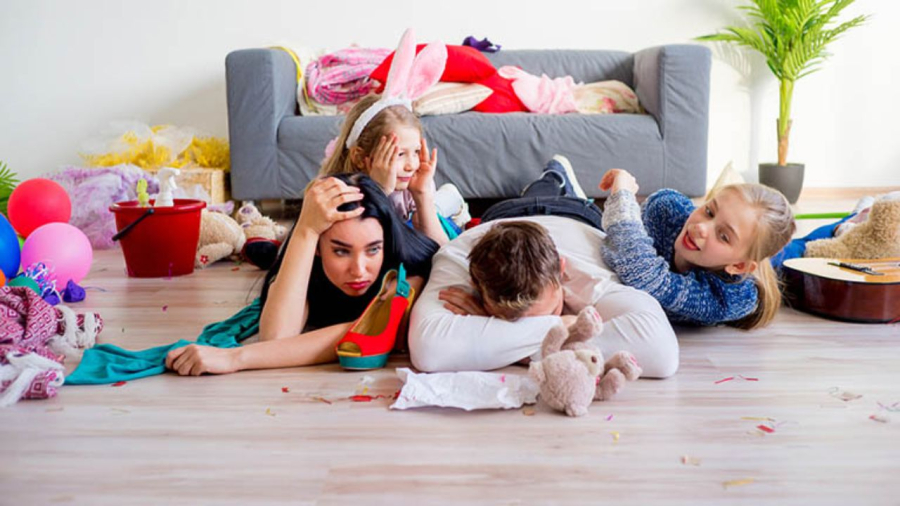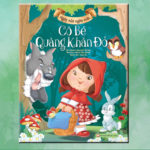Many parents believe that tidiness will help children develop good habits and keep their homes clean. While this is not entirely false, some parents may enforce these standards too strictly. Some parents even rush to tidy up their children’s messes, arranging everything neatly without delay.
At times, young children create messes to stimulate their thinking. According to Harvard University psychology professor Richard Clarke Cabot, after years of research, he discovered that the more untidy a child’s home or personal space, the more advanced their exploratory abilities. Such children may have great potential in the future. Professor Richard also stated that if a child frequently makes a mess in the following three places, parents should not be overly concerned, as it indicates that the child is intelligent.

Sometimes, children make a mess to explore
Children’s Desks are Messy
The first three years of life is the period when children experience the most rapid development of their thinking abilities. Their brains grow to 80% of their adult size during this time. Children are naturally curious and eager to explore, particularly with toys, books, and other objects. To explore, children often create chaos by making a mess. Once parents become aware of this natural developmental process, they will be less frustrated by the sight of toys strewn across their children’s desks. Thus, you can guide your children in organizing their belongings, but avoid scolding them when they make a mess while exploring. Do not attempt to force a child to behave like an adult. Instead, be happy when they make a mess with their toys. That is when their brains are actively absorbing information.
Children Spread Toys in the Living Room
The living room is often the largest room in the house, so children often bring their toys and other belongings there to play. The spaciousness of the living room provides them with more freedom and comfort. However, the living room is also often used for receiving guests and where parents relax after a long day. As a result, many parents become annoyed and scold their children for making a mess in the living room. In reality, this is also part of a child’s learning process. When children make a mess in the living room, they are actively exploring, creating, and developing their thinking skills, which contributes to their intelligence and deepens their understanding of the world.

Parents should not worry too much when children make a mess to search for something. That is when they are thinking.
Children’s Bedrooms are Messy
When children wake up, it is difficult for them to make their beds as neatly as adults.
If you see your child using their blanket as a toy and throwing it on the floor, it is actually a form of creative exploration. Children may use blankets as capes or other imaginative items. If you observe such creative behavior in their bedrooms, a little disarray is acceptable. Do not force your child to make their bed immediately after waking up. Allow them to be creative.
A parent’s role in this situation is to observe their child’s reasons for making a mess. Are they unable to tidy up even when necessary, such as before going to bed? If so, you may need to provide additional guidance on how to organize their belongings and solve problems. However, if they have already tidied up and then want to play again, resulting in a new mess, it indicates that they are actively learning and exploring. Children who frequently make a mess to search for something possess a continuous desire to learn and explore, rather than being merely destructive. Only intervene if their play becomes potentially harmful, such as mishandling dolls by twisting them unnaturally or hitting them. Sometimes, children break toys because they want to dismantle them to see how they are made.
14+ Unique Birthday Gifts for Girls to Impress Every Age
Are you on the hunt for the perfect birthday present for a special young lady in your life? Look no further – Dien May XANH has you covered with our comprehensive guide to age-appropriate gift ideas for girls of all ages. Read on for everything you need to know about finding the perfect birthday gift for a little girl!





































